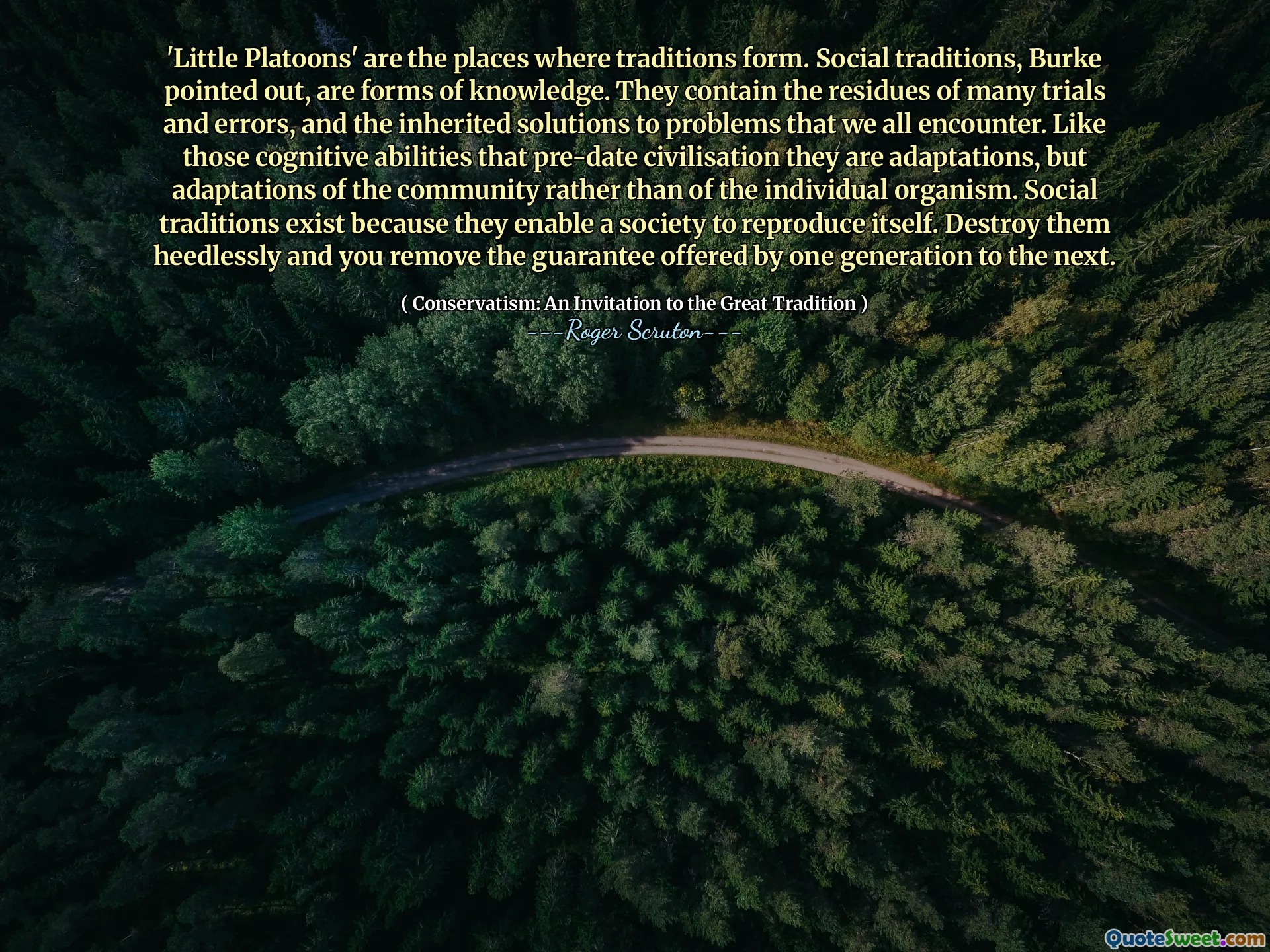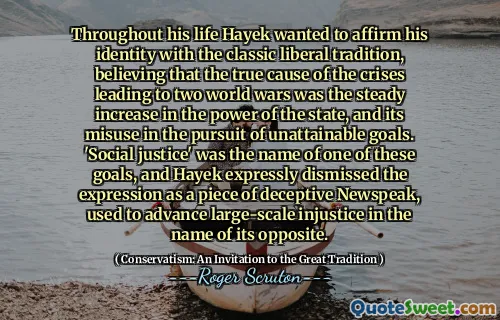
'Little Platoons' are the places where traditions form. Social traditions, Burke pointed out, are forms of knowledge. They contain the residues of many trials and errors, and the inherited solutions to problems that we all encounter. Like those cognitive abilities that pre-date civilisation they are adaptations, but adaptations of the community rather than of the individual organism. Social traditions exist because they enable a society to reproduce itself. Destroy them heedlessly and you remove the guarantee offered by one generation to the next.
This quote from Roger Scruton's "Conservatism: An Invitation to the Great Tradition" thoughtfully encapsulates the concept that traditions are not merely arbitrary customs, but rather the accumulated wisdom of societies distilled through generations. The metaphor of 'Little Platoons' — small communities or groups within society — as crucibles where these traditions develop is compelling. They act as nurturing environments where social knowledge is preserved and transmitted. What stands out is the comparison of social traditions to biological adaptations. Just as natural selection shapes traits that confer survival advantages at an individual level, traditions can be seen as adaptations at a societal level, fine-tuning communal life through collective experience and improving resilience over time.
This perspective urges us to recognize that traditions are living knowledge, refined over centuries of trial and error. The idea that social traditions enable a society to reproduce itself speaks to their essential function in maintaining cultural continuity and stability. Without them, the delicate thread that connects generations risks being severed. Moreover, the warning against destroying traditions recklessly reminds us that cultural heritage must be preserved with respect and understanding. The quote challenges modern tendencies to discard or radically alter traditions without considering their deep-rooted purpose and implicit wisdom.
Reflecting upon this helps underscore the importance of fostering and cherishing community institutions where shared values and experiences cultivate collective memory. It also highlights a more conservative stance that values continuity and prudence over abrupt change, emphasizing that societal evolution is best approached with care for enduring social knowledge rather than with outright rejection.







